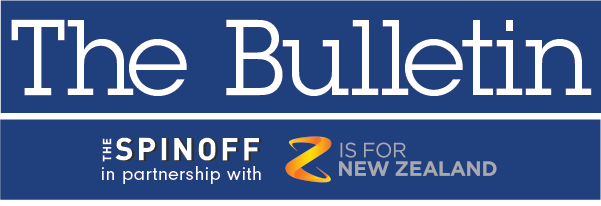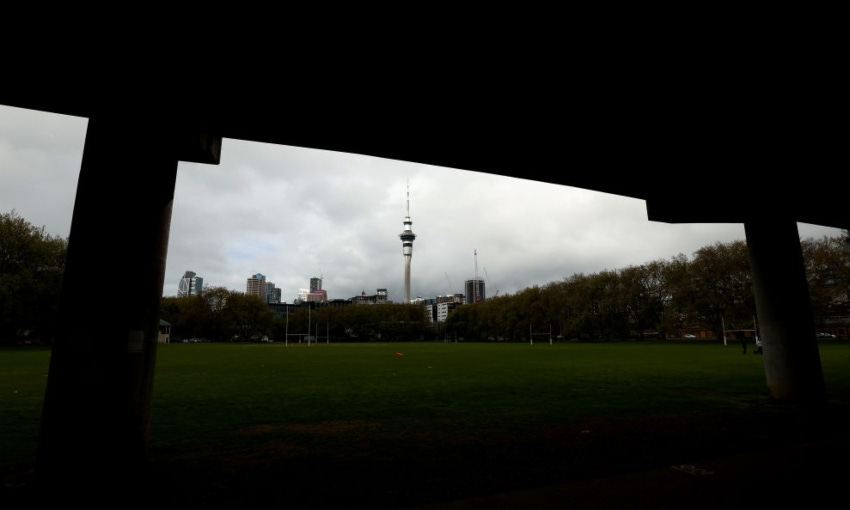The summer of the vaccine certificate
New Zealanders will need to show proof of vaccination to enter some venues starting in November as the government looks to boost the vaccine programme
Mōrena and welcome to The Bulletin for Wednesday, October 6, by Justin Giovannetti. Presented in partnership with Z Energy.
In today’s edition: A sweeping review of electoral laws is underway; Brian Tamaki is charged for the lockdown protest; more revelations from the Pandora Papers; but first, the country’s new vaccine certificates.
What New Zealand’s vaccine passport could look like. (RNZ/123rf)
Showing proof of vaccination is going to be a regular feature of life. The prime minister unveiled plans yesterday for a vaccine certificate, or a passport, that will be mandatory to attend large events starting next month. Accessing other businesses, like restaurants and bars, could also require showing proof of vaccination. While the list of where the certificates will be required is yet to be drawn up, Jacinda Ardern said supermarkets, dairies and health centres won’t be included. Businesses told RNZ that they are eager for clarity.
Following Monday’s unveiling of new freedoms for Auckland under level three, yesterday’s reveal of a vaccine certificate is the government’s stick to get people vaccinated as the immunisation programme has stalled. This is your warning from the government: if you want to attend a large event this summer like a music festival, you need to be getting vaccinated now.
How will the vaccine certificates work? The centrepiece of the system will be My Covid Record, a new website that’s already available in the test phase. It should be fully operational next month and will also include Covid-19 test results. Vaccination records will be kept on the government’s central database and linked to people through their NHI numbers. New Zealanders will be able to download a certificate with a QR code showing their vaccinated status. Those certificates can be kept on phones or carried around in printed form. An app will be available from early next year and it’ll be distinct from the existing Covid Tracer app because of privacy demands from Google and Apple.
There’s now a fast-approaching deadline to get vaccinated. As Stuff reports, time is running out for people who want to enjoy large events this summer. “To be fully vaccinated and fully protected and do the things you love, you need to be vaccinated this month, not in December,” the prime minister said yesterday. Someone receiving a first dose now, and waiting six weeks between doses, won’t be fully immunised before December. According to The Spinoff’s Covid tracker, 79% of the eligible population has now had a first dose and 2% more have booked. However, the number of first doses administered has fallen to around 12,000 a day in recent weeks, a quarter of the vaccination rate of a month ago. Officials have said numbers need to increase to surpass the country’s 90% target.
Vaccine certificates are becoming ubiquitous around the world. Although most countries now require proof of vaccination to travel, many are also requiring domestic use of vaccine certificates. Most of the European Union, a number of American states and most Canadian provinces require people to show similar QR codes on their phones to enter a number of venues. They aren’t without criticism, according to The Conversation, largely based on weighing concerns about freedom of movement with public health needs. England backtracked on domestic certificate use last month following a split in the ruling Conservative party.
According to Andrew Chen, a research fellow at the University of Auckland, the government’s system has learned from experience overseas and is reasonably well designed on the technical side. However, a number of thorny questions have yet to be answered on how the certificates will be used, especially once people vaccinated overseas are added to the system. “It is only under extraordinary circumstances with the current public health crisis that we can justify the use of certificates in this way. However, they can mitigate some of the risk associated with opening up and allow more people to be within infection range to each other,” he said.
If you like what you’re reading, we need your support. The Spinoff is doing our utmost to keep you updated on Covid-19 related news. Every dollar our members contribute directly funds our editorial team and is devoted to ensuring we do more. Click here to learn how you can support the team today.
The government has launched a sweeping review of the country’s electoral laws. RNZ reports that the voting age, the three-year term, party funding and the coat-tailing rule will be reviewed, any of which could bring about a substantial change to parliament if modified. The issue of overseas voting will also fall under the review and justice minister Kris Faafoi said changes to that could be made before the 2023 election, to protect the voting rights of New Zealanders who haven't been able to return recently due to Covid-19. Changes could also be made to ease changing between the Māori roll and the general roll. The children’s commissioner quickly came out yesterday to endorse voting by 16 and 17-year-olds.
What happened to elimination? After sending out yesterday’s Bulletin I spent a long time wondering what had happened to New Zealand’s Covid strategy. Up until the final days of September I thought it more than likely that we’d eliminate delta. And then we didn’t. Elimination served us well, thousands of lives were saved and the country enjoyed an incredible amount of normalcy until August. So what happened? Keith Lynch has written an explainer for Stuff about why elimination ended. One of the many valuable insights is that while level four bent the curve sharply, by the end cases were starting to grow again. It wasn't enough for delta. Having the facts laid out hasn’t left me in mourning, but proud of what was achieved and what can still come.
The Covid numbers: 18 new community cases were reported yesterday in Auckland and 6 in Waikato. 59% (17) of the previous day’s total were in the community while infectious. There are now 295 active cases. 55,673 people were vaccinated on Monday, of which 73% were second doses.
The Spinoff’s Covid data tracker has the latest figures.
Brian Tamaki has been charged for the weekend’s anti-lockdown protest. The Destiny church leader will appear in court next Tuesday on charges he breached the Covid-19 health response act and alert level three by organising a protest at the Auckland Domain attended by over 1,000 people, according to One News. Tamaki said yesterday he was surprised by the court summons. In the days since the protest he’s said police reports of people not wearing masks or keeping social distancing at the event aren’t true and has called lockdowns “repressive”. The prime minister said his protest was a “slap in the face” to the city.
Auckland house prices have fallen 4% during lockdown. The average house price in the city dropped to $1,132,552 in September, according to Stuff. While it's a 4% decline in one locked down month, the city's average prices are still up 13.6% over a year before. The figures could also be skewed because the number of apartments and lower cost homes sold was also up significantly in September, driving down the average. To help first-home buyers, the government announced yesterday that it is extending the progressive home ownership programme, which helped 53 families buy homes since it was created last year.
The Pandora Papers reveal a Catholic order caught in a sex scandal put $300 million in secret NZ trusts. One News reports from the cache of leaked documents that officials with the Legion of Christ Order set up trusts in New Zealand after the Vatican announcement it would seize the group’s assets as part of an investigation into widespread claims of paedophilia and sexual abuse. Victims who sought financial compensation were told the order was out of funds, while its secret trusts were heavily invested in US rental properties. To make matters worse, some of those properties then evicted tenants last year, violating a Covid-19 eviction moratorium.
Got some feedback about The Bulletin, or anything in the news?
Get in touch with me at thebulletin@thespinoff.co.nz
Level three restrictions begin to be eased in Auckland today (Phil Walter/Getty Images)
Right now on The Spinoff: Siouxsie Wiles writes that the end of elimination leaves her grieving, knowing that level one won’t be coming back as we knew it. National’s Melissa Lee explains why yesterday’s Facebook outage should be a wake-up call to regulate social media giants. George Driver explores the Pandora Papers and whether NZ remains a tax haven for the rich and dodgy. Sam Brooks reviews Diana, a musical that makes a mockery of the people’s princess. Sam Brooks also looks at two books that offer a much-needed window into queer life In Aotearoa.
For a longer read today, Facebook’s unprecedented outage is only a small sign of a company that is deeply troubled. The social media giant can seem like an unstoppable juggernaut, but an increasing number of leaks and whistleblowers have raised questions about how solid Facebook really is. The New York Times reports that the company’s own documents show its biggest problems are worse than many would expect and it knows it. Instead of being a world-conquering giant, it might be on borrowed time. Here’s a sample:
Facebook is in trouble.
Not financial trouble, or legal trouble, or even senators-yelling-at-Mark-Zuckerberg trouble. What I’m talking about is a kind of slow, steady decline that anyone who has ever seen a dying company up close can recognize. It’s a cloud of existential dread that hangs over an organization whose best days are behind it, influencing every managerial priority and product decision and leading to increasingly desperate attempts to find a way out.
Uncertainty surrounds the Afghan women’s soccer team. Reuters reports that the team’s players, and some of their dependents, were evacuated to Australia after the Taliban takeover in August. They’re now safe, but confused about their futures. The country’s repressive government has already banned women from playing cricket and despite promises to the contrary, seems to have stopped them from attending university. Afghanistan just isn’t a place for women who want to play sports.
That's it for The Bulletin. If you want to support the work we do at The Spinoff, please check out our membership programme.







